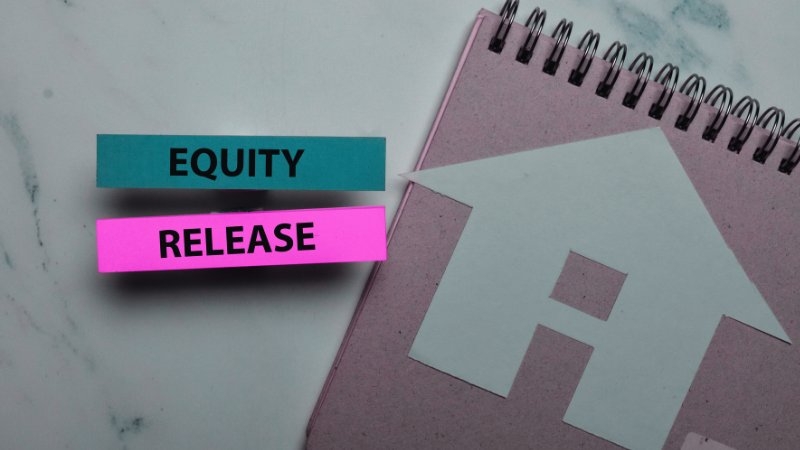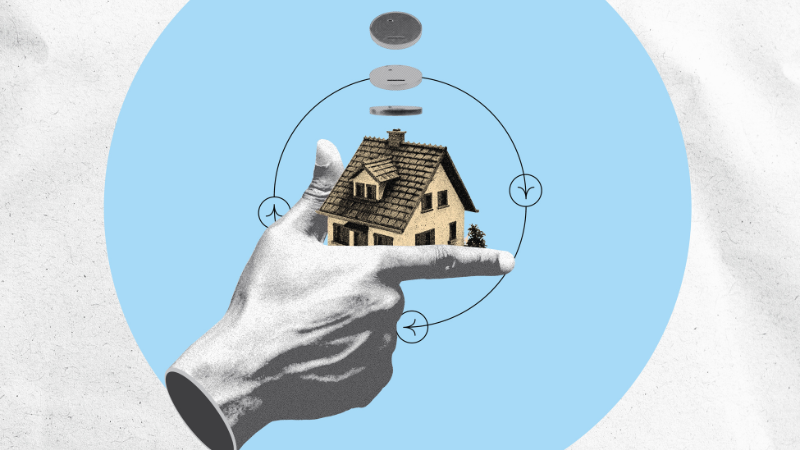How Long Does It Take to Get a Mortgage? (2025)


How Long Does It Take to Get a Mortgage? The Real Timeline Revealed.
Wondering how long does it take to get a mortgage? The process typically takes between two to six weeks for full approval from a lender. This timeline isn’t just a waiting game—it involves several distinct stages that require your active participation.
During the initial appointment, which lasts approximately two hours, you’ll complete your mortgage application and undergo a credit check. After this, the home valuation process takes around two weeks. When all these stages are complete, expect to wait up to four weeks for the final decision on your mortgage application. Once approved, you’ll move toward completion of the sale, finally receiving the keys to your new home.
This article breaks down the real mortgage timeline, potential delays you might encounter, and practical tips to speed up the process. Whether you’re a first-time buyer or simply want to understand how long mortgage applications take, this comprehensive guide gives you the facts you need.
Step-by-Step Timeline: How Long Does It Take to Get a Mortgage?
The journey from mortgage application to getting your house keys follows a predictable path. Let’s break down the complete mortgage timeline step by step.
Your mortgage journey begins with obtaining an Agreement in Principle (AIP), which you can typically secure within 24 hours. This important first step gives you an indication of how much you could borrow before you start house hunting.
After finding your dream home and having your offer accepted, you’ll submit a full mortgage application. Completing the actual application form takes approximately three to six hours. Following submission, your lender reviews your application and supporting documents while conducting a thorough credit check.
Next comes the property valuation stage, which typically requires about two weeks. During this period, the surveyor arranges a date, conducts the mortgage valuation survey, and prepares their report. The lender’s underwriter then reviews this report to ensure the property value is accurate and there are no issues.
If the lender is satisfied with your financial situation and the valuation results, they’ll issue a formal mortgage offer. This entire process—from application submission to receiving an offer—usually takes two to four weeks, although some lenders may take up to six weeks.
Once you receive your mortgage offer, you’ll move toward exchanging contracts, which typically happens around two months after receiving the offer. At this point, you’ll pay your deposit and the agreement becomes legally binding.
The final step is completion, which generally occurs between seven and 28 days after exchanging contracts. Many buyers choose a Friday for completion as it provides the weekend to settle into their new property. On completion day, the seller receives the money from your solicitor, and you get the keys to your new home.
Throughout this entire process, from starting your property search to completion, buying a property in the UK takes around six months on average, though this timeline can vary based on your circumstances and the property you’re purchasing.
Related reading:
What Can Delay Your Mortgage Application?
Even with careful planning, several factors can extend your mortgage timeline beyond the expected two to six weeks. Understanding these potential roadblocks can help you avoid or prepare for them.
Incorrect or incomplete documentation ranks among the top reasons for mortgage application delays. Missing documents or errors could lead to rejection or extended processing times. Something as simple as a mistake with your phone bill could halt the entire process! Additionally, lenders prefer original documents over scans or copies whenever possible.
Your credit history plays a crucial role in approval speed. Having a bad credit score, too many applications for credit, or a high debt-to-income ratio can all trigger additional scrutiny. Undisclosed debts, including personal loans, student loans, and even Buy Now Pay Later plans can delay your application or result in rejection.
Property valuation issues frequently cause unexpected delays. A “down valuation” occurs when a surveyor determines that a property is worth less than the agreed sale price. Subsequently, this can trigger significant problems with your mortgage offer, as the lender may reduce the amount they’re willing to lend you.
Employment changes can also complicate matters. Lenders want to see a record of stable employment and income, ideally with a two-year history in your current position. Furthermore, self-employed applicants typically need to provide proof of two to three years of steady income.
Apart from these factors, external circumstances like COVID-19 have created new complexities in the mortgage process. Many lenders report difficulties in scheduling surveyor visits, especially for buy-to-let properties with tenants.
For this reason, mortgage experts recommend responding quickly to any requests from your solicitor or lender and checking in regularly for updates on legal progress, searches, and timelines. In spite of potential delays, being prepared with proper documentation and maintaining good financial habits will significantly improve your chances of a smooth mortgage application process.

Tips to Speed Up the Mortgage Process
Looking to accelerate your mortgage approval process? With strategic preparation, you can significantly reduce the time it takes to secure your mortgage loan.
Start by obtaining a mortgage agreement in principle (AIP) before house hunting. This quick assessment, which typically takes just 10 minutes to complete, demonstrates to sellers that you’re a serious buyer and can expedite the purchasing process. Moreover, an AIP gives you a clearer idea of your budget, helping you focus your search on properties within your price range.
Gathering your documentation early is perhaps the most effective way to speed up your mortgage application. Sending all paperwork in one batch reduces the chances of your application being reviewed multiple times. Consequently, prepare the following essential documents:
- Last three months’ bank statements and payslips
- Proof of bonuses/commission
- Latest P60 tax form
- Proof of deposit (savings account statements)
- ID documents (passport or driving license)
- Proof of address (utility bills)
- Gift letter (if receiving deposit help)
Working with a mortgage broker can further streamline the process. Indeed, applications through brokers can often be completed in 2-4 weeks, compared to 4-6 weeks when applying directly to lenders. Brokers know exactly what information lenders require and can help prepare necessary documents, thereby expediting the underwriting process.
Maintaining regular communication throughout the application process is equally important. Respond promptly to any requests for additional information from your lender or broker. In fact, effective communication ensures borrowers understand their loan obligations and have adequate access to support when needed.
Many lenders now offer digital tools that can verify your income instantly. For instance, some have implemented automated income verification services that digitally confirm homebuyers’ declared income, removing the need for manual income proofs. As a result, these digital verification methods can help secure instant offers in minutes rather than days.
Ultimately, taking these proactive steps can transform your mortgage journey from a lengthy waiting game into a smoother, faster process.
Mortgageable offers a free Equifax Credit Report as part of its service, with no obligation to proceed. Something worth considering.
Conclusion
Understanding the mortgage timeline proves essential for anyone embarking on the home buying journey. While the process typically spans between two to six weeks, your preparation and knowledge can significantly impact this timeframe. The entire journey—from getting an Agreement in Principle to receiving your house keys—follows a structured path with predictable milestones.
Remember that several factors might extend your timeline beyond the expected duration. Incomplete documentation, credit history issues, property valuation problems, or employment changes all represent potential roadblocks. Therefore, staying organized and responsive throughout the process becomes crucial for maintaining momentum.
Thankfully, you can take specific actions to expedite your mortgage approval. Obtaining an Agreement in Principle early, gathering all necessary documentation beforehand, working with an experienced mortgage broker, and maintaining prompt communication with all parties involved will undoubtedly streamline the process. Additionally, taking advantage of digital verification tools offered by many lenders can further reduce waiting times.
The mortgage application journey might seem daunting at first glance. However, armed with the right information and proper preparation, you can navigate each stage confidently and efficiently. After all, understanding the real timeline—with its potential challenges and opportunities for acceleration—puts you in a stronger position to achieve your homeownership dreams without unnecessary delays.
Key Takeaways
Getting a mortgage involves a structured timeline with specific stages, but proper preparation can significantly accelerate the process and help you secure your dream home faster.
• Mortgage approval typically takes 2-6 weeks, with the full home buying process averaging around 6 months from property search to completion.
• Get an Agreement in Principle early – this 24-hour process demonstrates you’re a serious buyer and helps focus your property search within budget.
• Prepare all documents upfront to avoid delays – gather 3 months of bank statements, payslips, P60, deposit proof, and ID before applying.
• Common delays include incomplete paperwork, credit issues, and property valuation problems – staying organized and responsive prevents most setbacks.
• Working with a mortgage broker can reduce timeline to 2-4 weeks compared to 4-6 weeks when applying directly to lenders.
The key to a smooth mortgage process lies in preparation and communication. By understanding potential roadblocks and taking proactive steps, you can navigate from application to house keys with confidence and minimal delays.
















